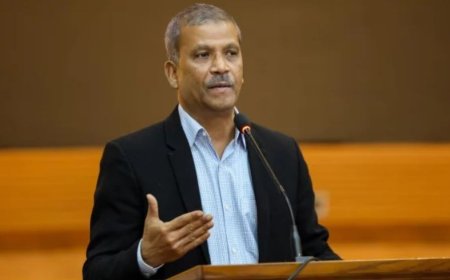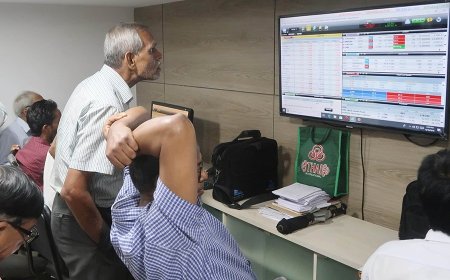Businesspersons experience unease and face uncertainty regarding investments
Businesspersons experience unease and face uncertainty regarding investments

The volume of investment grew less than expected during the successive terms of the ousted Awami League government from 2009 to 2024. Employment generation also fell short of the country’s needs.
Currently, businesspersons are grappling with heightened unease and uncertainty about investments, adding to the economic challenges.
Historically, political instability causes a dip in investments, particularly during election years. The one-sided national election held on 7 January and the subsequent political unrest, including the Students Against Discrimination movement and the mass uprisings of July-August, disrupted economic stability.
In the 100+ days since the Awami League’s ouster, labour unrest has become commonplace in Dhaka and other areas, hampering production. The law-and-order situation remains fragile, and political instability persists, further deterring investments. Business leaders note that this uncertainty discourages investment, which in turn limits employment opportunities and exacerbates unemployment.
Economic downturns, compounded by over 10% inflation, have also reduced income growth, deepening public hardships.
Despite calls from businesspersons and economists to maintain trade and commerce, there is a noticeable lack of dialogue between the interim government and the business community. Moreover, no significant steps have been taken to address their concerns.
The government has recently appointed industrialist Sk Bashir Uddin as an adviser to the commerce ministry, raising hopes among business circles for better engagement. Abul Kasem Khan, former president of the Dhaka Chamber of Commerce & Industry (DCCI), emphasized that while businesses haven’t lost all confidence, uncertainty makes investors hesitant. He highlighted the need for clarity on the political and economic landscape for the next three to six months to restore trust.
Investment Trends
Updated data on investments is scarce, but key indicators reflect the situation. Private sector credit growth fell to 9.69%, the lowest in 23 months, according to Bangladesh Bank.
Investment proposals received by the Bangladesh Investment Development Authority (BIDA) also saw a sharp decline. In July-September, BIDA recorded proposals worth Tk 196.18 billion from 186 firms, just one-fourth of the previous quarter’s Tk 773.64 billion from 254 firms.
BIDA Executive Chairman Chowdhury Ashik Mahmud Bin Harun stated that efforts are underway to restore business confidence by stabilizing macroeconomic indicators, which saw a downturn until August. He expressed optimism that both domestic and foreign investments would rise with the return of stability.
Over the past decade, the investment-to-GDP ratio hovered around 22-23%, while GDP growth exceeded 7%. However, economists like Debapriya Bhattacharya criticized this growth as "jobless" and described GDP projections as overly optimistic.
Employment Challenges
Government statistics show that 2-2.2 million youths enter the job market annually, but only 1.2-1.3 million secure jobs within the country, with another 800,000-900,000 going abroad.
The Labour Force Survey 2022 indicated 2.58 million unemployed individuals, with 31% being educated youth holding graduate or postgraduate degrees. Unemployment disproportionately affects the 15-29 age group, with 7.5 million young people unable to find suitable jobs.
Unemployment was a key factor behind the student protests demanding government job quota reforms. The movement escalated into a call for the government’s removal following violent crackdowns.
Government Initiatives
In the past three months, 222,812 workers went abroad, and 1,215 businesses obtained trade licenses. Plans are underway to support 60 startups and fund 500 women entrepreneurs. Additionally, a national job portal has been proposed to simplify government job recruitment.
Adviser Asif Mahmud Shojib Bhuayin reported that 86,277 jobs were created under various ministries in the interim government’s first 100 days.
Structural Shifts and Recommendations
Analysts note that the current situation differs from the past. Many business leaders with ties to the previous government are either in hiding or facing legal scrutiny. Ongoing investigations into corruption and irregularities have added pressure on businesses.
Economist Selim Raihan emphasized that trade and investment in developing countries rely on a mutual understanding between the government and business communities. The existing framework has eroded, and uncertainty about the democratic transition hinders investment recovery.
He urged the interim government to announce a clear roadmap for democratic transition to ease uncertainties. Additional measures, such as filling vacant government posts, increasing public investment, and creating temporary employment programs, could help stabilize the economy. Ensuring law and order, protecting businesses, and guaranteeing workers' wages should also be prioritized.
The business community continues to stress the need for reforms that simplify starting and operating businesses. Frequent dialogue between the government and businesspersons is essential to foster a business-friendly environment and revive investment momentum.
What's Your Reaction?





















































































